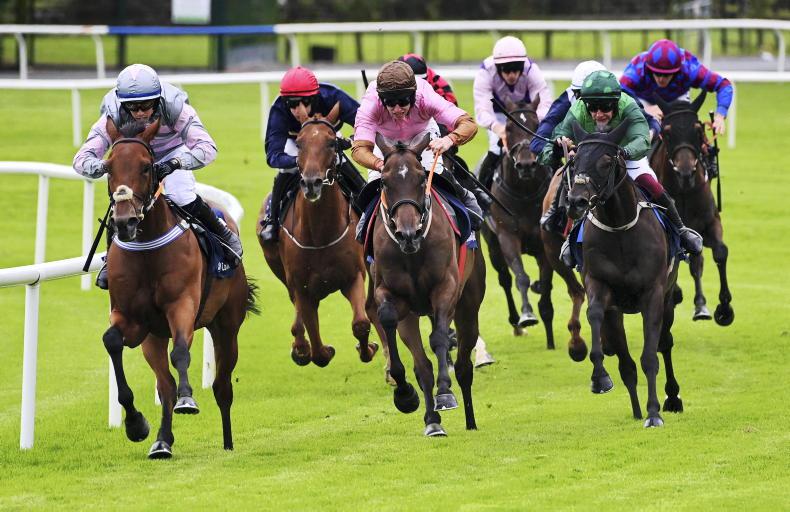A group of “industry heavyweights” headed by Peter Savill, former chairman of the then British Horseracing Board, have put together a proposal for the restructuring of British racing which has been submitted to the British Horseracing Authority.
Savill, along with representatives from racecourses, leading trainers, horsemen and bookmakers have held meetings aiming to solve the financial problems faced by racing.
Best known as the owner of Celtic Swing, the brilliant champion juvenile of 1994 who went on to win the French Derby, and dual Ascot Gold Cup hero Royal Rebel, Savill was chairman of the BHB, a precursor to the BHA, for six years from 1998-2004.
Those involved in the meetings are concerned at the persistent transfer of equine talent heading overseas, specifically to Australia, America and Hong Kong, where prize-money dwarfs that on offer in the UK and Ireland.
A report in The Times suggested the plan is to set a minimum level of prize-money before a racecourse can stage a meeting. However, there would then be a risk of smaller racecourses being cast adrift, unable to raise the funds – specifically the independent tracks.
Speaking to the Nick Luck Daily Podcast, Savill said: “Over the last few months I’ve met with a number of industry heavyweights to get their perspective on a number of issues that are facing British racing.
“As a result of that we’ve put together a letter to the BHA with outlying principles that we think they should take forward into their upcoming strategy review which will start August/September time.
“These are people from across the whole spectrum. Owners, breeders, trainers, bookmakers, so it was a good cross-section of people who thought this was worth putting across to the BHA. So it is now up to them. I have no role in the industry at all, the decisions will be made by the BHA. I’ve put it forward and it is now up to the industry to decide.
“I just felt it needed to not come from one section of the industry. I’ve kept the BHA involved all along as I felt that was appropriate and the people involved are key players in the industry.
“I felt there was a huge amount of support, but now it’s up to the BHA with a strategy review coming so it was perfect timing.
“Looking at the problems, everybody mentions prize-money – though it was gone up to record levels, the problem is other jurisdictions have gone up quicker. This problem has been exacerbated as they are not racing for the prize-money which they are worth.
“There are two real problems with field sizes and the horse drain at the top end, which has been caused by the loss of major owners like Juddmonte, Cheveley Park, Shadwell and King Power. From between 2019 and 2021 those owners are owning 20 per cent less runners than they did and it will get considerably worse in 2022 with those owners.
“But the bigger problem is the owners of horses rated 80-85 getting offers up to £250,000 to go off to America to win a maiden worth $100,000 so the reduction in the number of horses at the top end is quite dramatic.
“The problem linked to this is field sizes. We have to solve both of these otherwise British racing will go further downhill.
“We have to find considerably more prize-money for the top end. A racehorse is an asset and if it is worth £250,000 you have to get a return on that asset that makes some sort of sense, otherwise you are going to move on do something else with your money.
“We have to get the field sizes right as people bet more on bigger fields. You have to get better field sizes in the better races to increase turnover so we need to reduce the number of races at the top end and put on more races down at the bottom end.
“As you put on fewer races at the top end the prize-money will automatically rise and at the bottom end there will be more races for them. It will be easier for them to win as instead of running in bigger fields theoretically they should be smaller.
“We need to level up the field sizes so that we have the right field sizes in the right class of races. That means fewer races at the top and more races down at the bottom.
“We’re suggesting small racecourses should have the opportunity to stage better class races as well. For instance we think there should be better quality racing on a Sunday. All the evidence shows Sunday is the biggest opportunity to develop top-class racing, it happens in Ireland and France but for some reason has never happened here.”
In response a BHA spokesperson said: “British racing’s leaders have agreed to deliver an industry strategy which has the sport’s financial future, prize-money, international competitiveness and the appeal of the racing product to our various customers at its core.
“For these reasons we welcome any proposals from those who have the interests of the sport at heart, and they would be considered as part of the development of that industry strategy, which will take place as a matter of urgency over the coming months in collaboration and consultation with our industry’s stakeholders.”


 This is a subscriber-only article
This is a subscriber-only article
 It looks like you're browsing in private mode
It looks like you're browsing in private mode





SHARING OPTIONS: